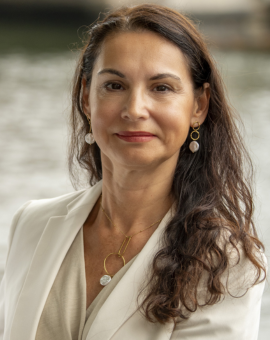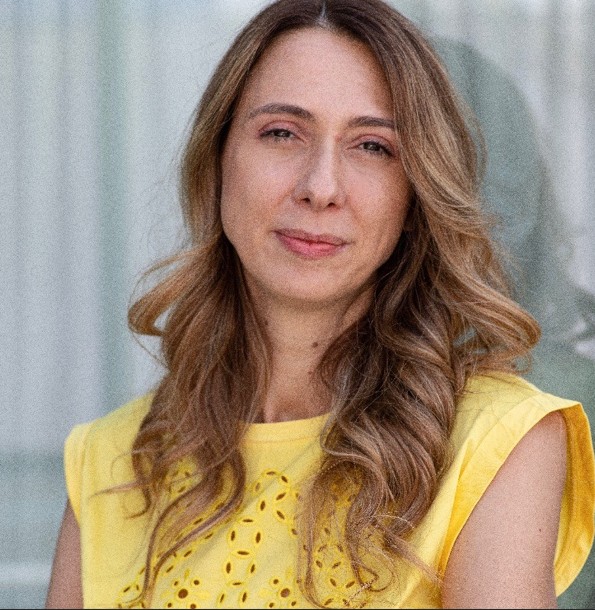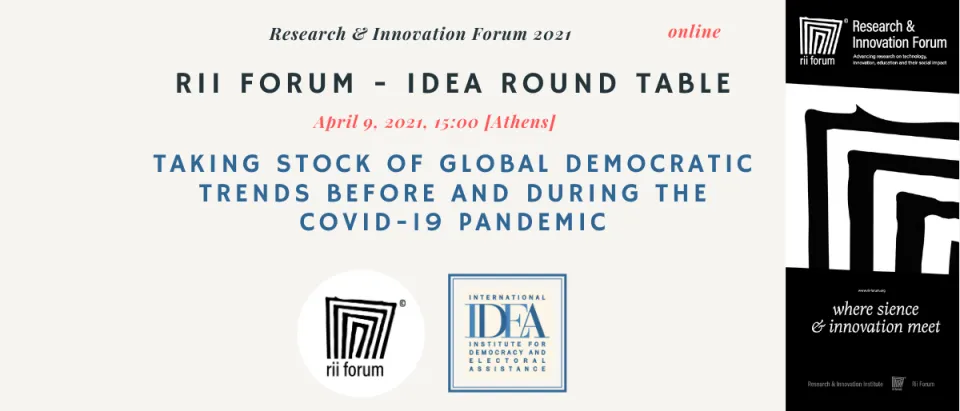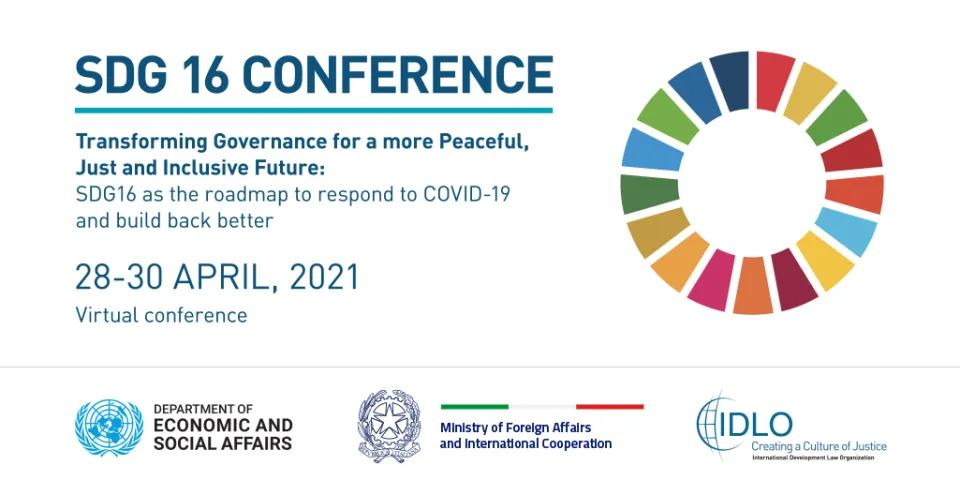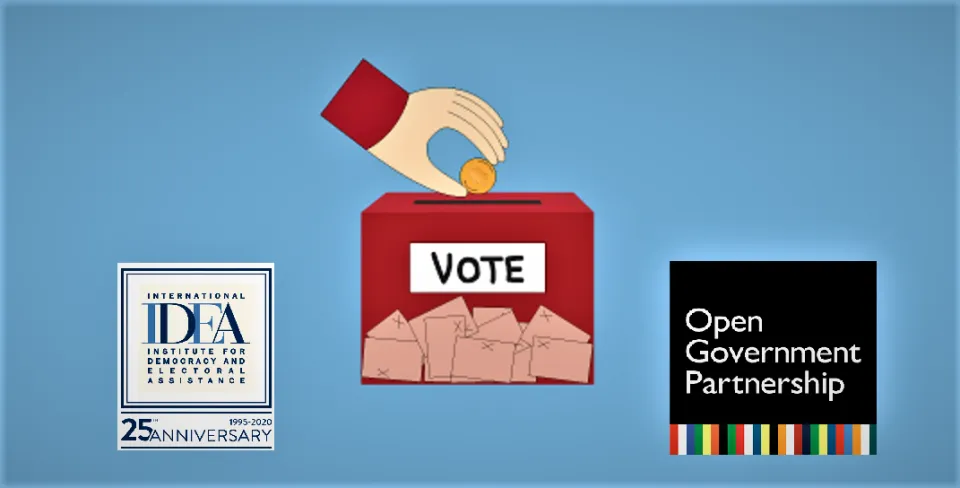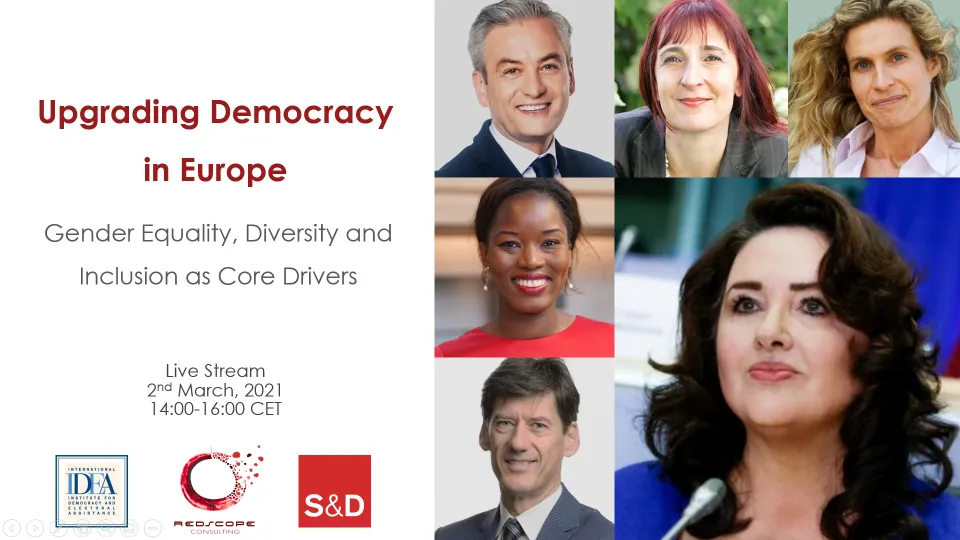Promoting Progress on SDG 16 and SDG 5 as Pathways to Inclusive Social Development
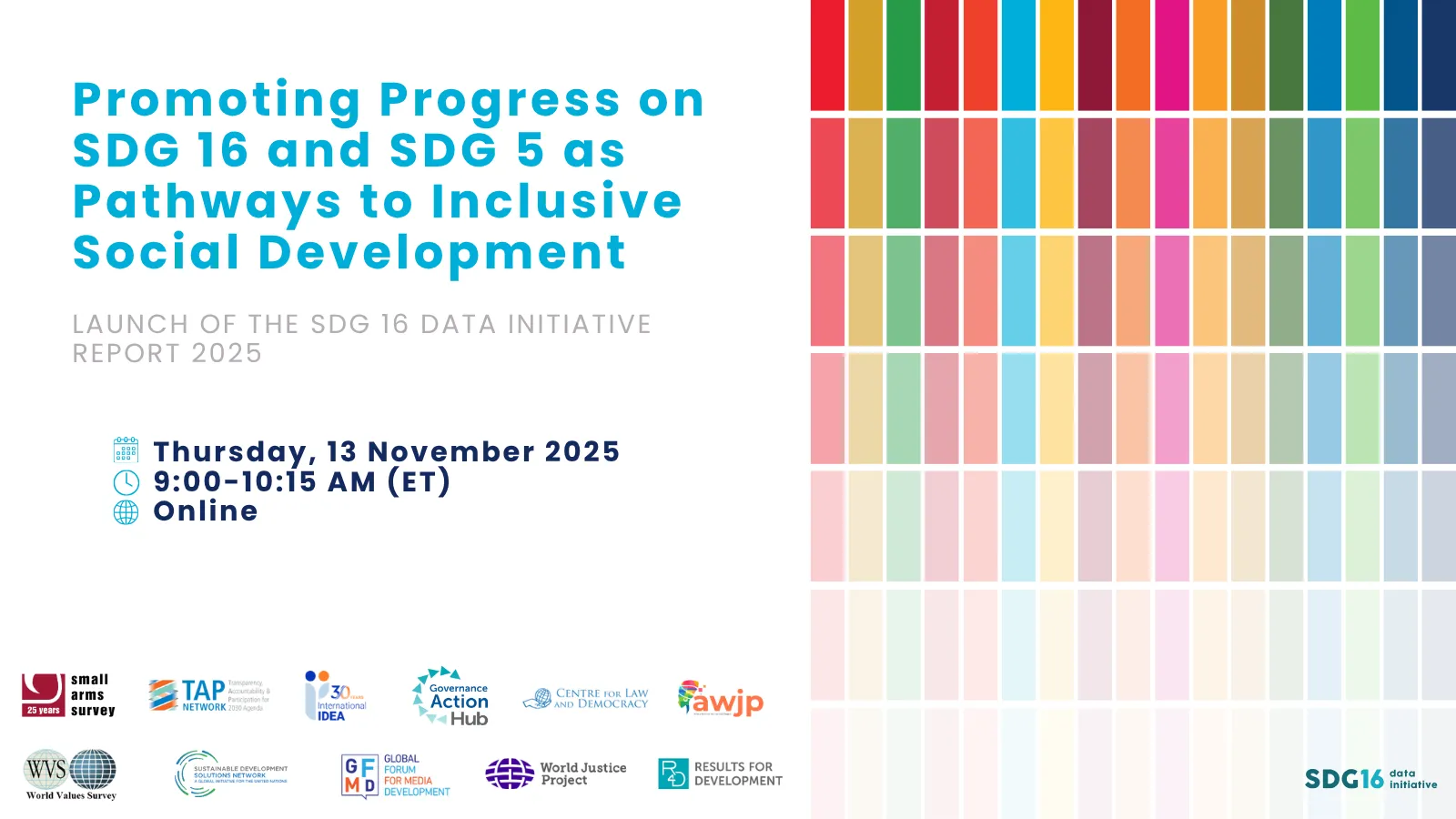
Background
In 1995, member states took a significant step toward advancing equality, justice, and inclusive development through the adoption of the Beijing Declaration and Platform for Action and the Copenhagen Declaration on Social Development. These declarations laid the moral and institutional foundations for the Millennium Development Goals and, later, the 2030 Agenda for Sustainable Development, including Sustainable Development Goals (SDGs) 5 on Gender Equality and 16 on Peace, Justice, and Strong Institutions. As the world enters the final years of the 2030 Agenda, the principles enshrined in the declarations of 30 years ago—gender equality, democratic governance, social development, and peace—remain as relevant and urgent as ever.
SDG 5 and SDG 16 are deeply interconnected. Gender equality is not only a human right but also a prerequisite for sustainable development. Similarly, peace, justice, and strong institutions are essential for building inclusive societies. However, progress on both goals has been uneven and, in some areas, regressive. While there have been modest gains in gender equality—such as a rise in women’s parliamentary representation—transformative change remains elusive. Many countries still lack female leadership at the highest levels, the gender pay gap persists, and violence against women continues at alarming rates.
At the same time, SDG 16 is facing serious setbacks, with declines in the rule of law, institutional transparency, and civic freedoms. These trends threaten the democratic and inclusive foundations envisioned in 1995 and reaffirmed in the 2030 Agenda. The erosion of trust in institutions, rising authoritarianism, and shrinking civic space undermine efforts to achieve people-centered development.
This event seeks to explore how progress on these two vital goals of the 2030 Agenda serves as a pathway for inclusive social development and for revitalizing the commitments made three decades ago. It will highlight the importance of non-official data in monitoring SDG implementation, with a particular focus on SDG 16 targets and indicators.
Format
This 75-minute online event will bring together members of the SDG 16 Data Initiative to discuss progress, challenges and the way forward in the implementation of SDG 16 for the achievement of gender equality and social development. The target audience for this event includes member states, policymakers, UN agencies, civil society actors, academia, and other stakeholders that work on data collection and in the implementation of the 2030 Agenda.
Speakers

